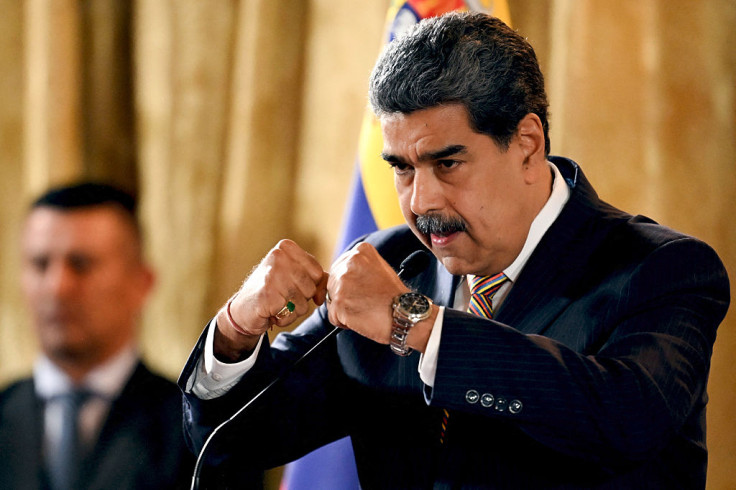
Venezuela's authoritarian President Nicolás Maduro has ordered the immediate creation of a new surveillance tool within VenApp, a government platform first launched in 2022, calling on citizens to report "everything they see, everything they hear" at all hours of the day.
The order, announced during a televised address, comes amid heightened tensions with the United States, whose military presence in the Caribbean has grown in recent months as part of operations the Trump administration says are aimed at combating drug trafficking.
"The VenApp system must proceed immediately, together with the Bolivarian National Armed Forces, the communal militia units, and the territorial defense bases, to create an application for people to safely report 24 hours a day everything they see, everything they hear," Maduro said, according to The Los Angeles Times. He framed the initiative as a measure to "continue winning peace and tranquility" and praised it as "a wonderful idea."
VenApp was originally designed to allow Venezuelans to report problems with public services such as electricity outages and water shortages. However, human rights groups have warned that the platform has been repurposed to identify and target dissent.
In July 2024, Maduro urged supporters to use VenApp to report protesters who took to the streets after claiming victory in the presidential elections without providing documents to support it. "We are going to open a window in the App... so that the entire population can confidentially provide the details of all the criminals who have attacked the people so we can go after them," he said at the time.
Following that announcement, users reported that the app had been updated to allow anonymous reports of demonstrators. In 2022, NGO Redes Ayuda warned that VenApp collects extensive personal information—such as national ID numbers and home addresses—and shares data directly with authorities, offering no data protection guarantees.
Maduro's latest order coincides with his government's broader strategy of reinforcing territorial defense through civilian militias and digital monitoring systems as the Trump administration escalates its pressure campaign. "We must be prepared for active and prolonged popular resistance," he said Monday, adding that Venezuela's defensive apparatus is now "more powerful than ever."
The United States currently maintains warships, aircraft, and drones near Venezuelan waters. Washington has accused Maduro of working with drug cartels and doubled its bounty for his capture to $50 million in August. Caracas, in turn, has condemned U.S. actions as part of an effort to provoke regime change.
© 2025 Latin Times. All rights reserved. Do not reproduce without permission.






